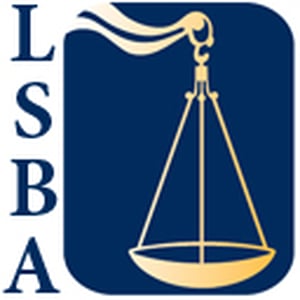 The Louisiana State Bar Association adopted a resolution at its June 2016 Annual Meeting recommending an amendment to Louisiana Rule of Professional Conduct 1.5(f)(2) governing fixed fees. Under the current rule, a lawyer earns a fixed fee when the lawyer agrees to handle the client’s matter through completion. As a result, the current rule permits the lawyer to deposit the fixed fee into the lawyer’s operating account upon receipt:
The Louisiana State Bar Association adopted a resolution at its June 2016 Annual Meeting recommending an amendment to Louisiana Rule of Professional Conduct 1.5(f)(2) governing fixed fees. Under the current rule, a lawyer earns a fixed fee when the lawyer agrees to handle the client’s matter through completion. As a result, the current rule permits the lawyer to deposit the fixed fee into the lawyer’s operating account upon receipt:
(2) When the client pays the lawyer all or part of a fixed fee or of a minimum fee for particular representation with services to be rendered in the future, the funds become the property of the lawyer when paid, subject to the provisions of Rule 1.5(f)(5). Such funds need not be placed in the lawyer’s trust account, but may be placed in the lawyer’s operating account.
That does not mean, however, that the fixed fee is “nonrefundable.” If the client discharges the lawyer or the lawyer otherwise terminates the representation, the lawyer must return any unearned portion of the fee. After all, keeping an unearned fee would violate Louisiana Rule 1.5(a), which prohibits a lawyer from charging or collecting an “unreasonable fee.”  The occasional obligation to refund a fixed fee after payment has caused problems in practice. The Client Assistance Fund and the Office of Disciplinary Counsel have reported instances in which a client has fired a deadbeat lawyer after paying a fixed fee. In many cases, the client’s request for a post-discharge refund has been met with this reply: “No. I spent the money.”
The occasional obligation to refund a fixed fee after payment has caused problems in practice. The Client Assistance Fund and the Office of Disciplinary Counsel have reported instances in which a client has fired a deadbeat lawyer after paying a fixed fee. In many cases, the client’s request for a post-discharge refund has been met with this reply: “No. I spent the money.”
To address this problem, the LSBA has recommended to the Louisiana Supreme Court that it amend Rule 1.5(f)(2) to allow fixed fees only when a lawyer obtains “the informed consent of the client in a writing signed by the client.” More particularly, the amended rule would provide as follows:
(f) Payment of fees in advance of services shall be subject to the following rules: . . . (2) A lawyer may charge a fixed or minimum fee for specified legal services, which fee may be paid in whole or in part in advance of the lawyer providing the services. With the informed consent of the client in a writing signed by the client, and subject to the provisions of Rule 1.5(f)(5), the funds may be used by the lawyer when paid and, need not be placed in the lawyer’s trust account. The written fee agreement shall include the following: (i) the scope of services to be provided; (ii) the total amount of the fee and the terms of payment; (iii) that the funds will be used by the lawyer when paid and will not be placed in a trust account; (iv) that the fee agreement does not alter the client’s right to terminate the client-lawyer relationship; and (v) that the client may be entitled to a refund of a portion of the fee if the agreed-upon legal services have not been completed.
See Resolution 2, LSBA House of Delegates (May 6, 2016) (approved by the LSBA House of Delegates on June 9, 2016, and the LSBA Board of Governors on June 10, 2016).
This is a sensible proposal. It would address many of the problems associated with fixed fees, but would not take the controversial step of requiring a lawyer to place a fixed fee in trust until the conclusion of a matter. Moreover, it would require the lawyer and client to agree upon the scope of the lawyer’s services at the commencement of the representation—something that is often a point of confusion. Finally, it would formally notify the client of the right both to terminate the lawyer’s services and to demand the refund of any unearned portion of the up-front fee.
